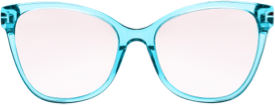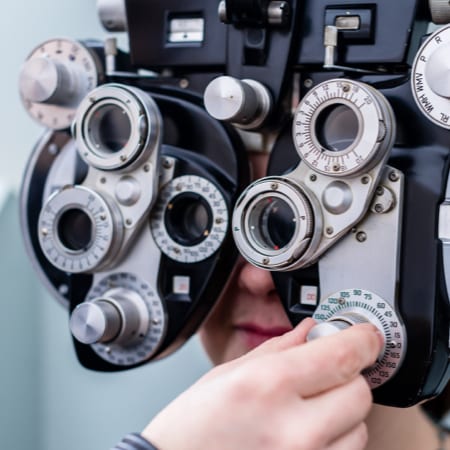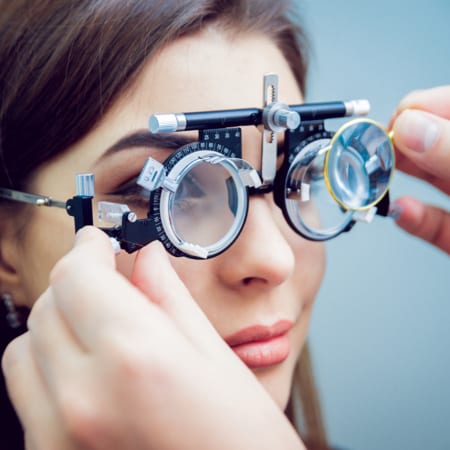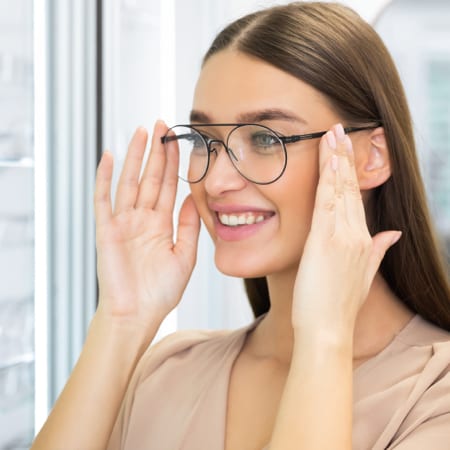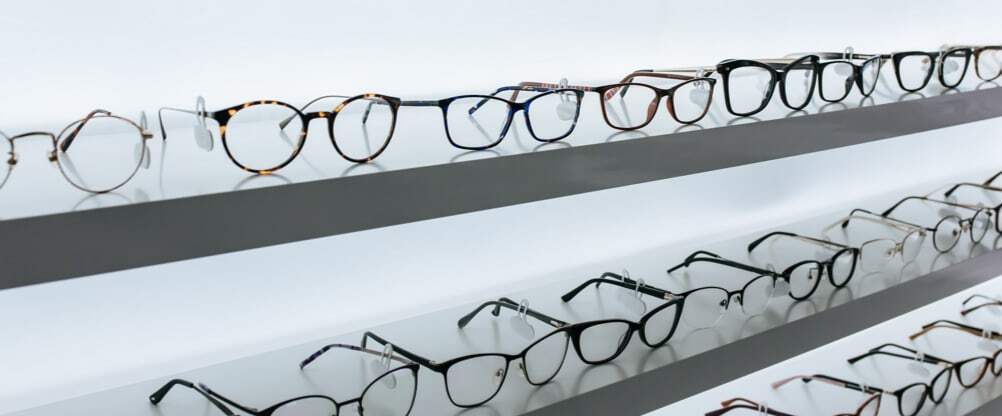Dry eye is a common condition that can lead to vision problems and discomfort. In some cases, severe dry eye can even damage the surface of your eyes. Environmental conditions, prolonged screen time, and underlying conditions can cause or worsen dry eye symptoms.
To effectively manage your symptoms, treatment options can be tailored to address the underlying cause of dry eyes. Omega-3 has anti-inflammatory properties that can help enhance tear film quality and reduce tear evaporation to alleviate dry eye symptoms, especially when paired with in-office treatments and at-home eyelid hygiene.
What Is Dry Eye?
Dry eyes occur when the eye’s tear film cannot maintain the necessary moisture.
To keep your eyes sufficiently moisturized, your tear film consists of 3 essential layers: the oily outer layer, the watery middle layer, and the inner mucous layer. These layers work together to promote healing, prevent inflammation, and defend against infection.
Symptoms of dry eye can include:
- Stinging or burning sensation
- Foreign object sensation
- Redness and irritation
- Sensitivity to light
- Blurred vision
What Causes Dry Eye?
Several factors can contribute to dry eye, including environmental conditions, hormonal changes, excessive screen use, and aging.
However, while some factors can temporarily cause dry eyes, persistent symptoms usually indicate underlying issues with your tear system, such as:
- Insufficient tear production
- Increased tear evaporation
- Imbalances in tear composition
What Are the Components of the Tear System?
Lacrimal Glands & Tear Production
Your lacrimal glands are responsible for producing the watery layer of your tear film. Working with your eyelids, these glands play an important role in secreting and distributing moisture and nutrients across the surface of your eye.
Meibomian Glands & Tear Retention
These tiny glands are located in the eyelids and secrete a quality oil called meibum, which helps maintain a healthy tear film.
Blockages in these glands can cause obstructive meibomian gland dysfunction (MGD). When the amount or quality of the oil changes, the watery layer on the eye surface may evaporate too quickly and lead to dry eyes.
Lacrimal Puncta & Tear Drainage
Tears enter the tear duct system at the lacrimal puncta. When you blink, your puncta drains used tears. Your lacrimal sacs collect these tears, acting as temporary reservoirs for tears. Your tears then drain into the lacrimal ducts, or tear ducts, on either side of your nose.
Is Omega-3 Good for You?
Omega-3 plays an important role in preserving your overall health and supporting brain, heart, bone, and eye health. It can also help reduce inflammation and lower the risk of certain chronic conditions.
Is Omega-3 Good for Your Eyes?
Since MGD causes inadequate oil production, it can cause chronic evaporative dry eye. Increased tear evaporation results in an increased risk of ocular surface damage, as the tears no longer sufficiently protect the eye.
Omega-3 fatty acids break down into anti-inflammatory molecules, which help suppress the inflammation associated with MGD.
Omega-3 also helps alter the composition of the oil, increasing the levels of unsaturated fatty acids. Unsaturated fats remain liquid at body temperature and prevent blockages in the meibomian glands.
Long-term consumption can reduce inflammation and improve the quality of oil secretions, helping to reduce tear film evaporation and alleviate dry eye symptoms.
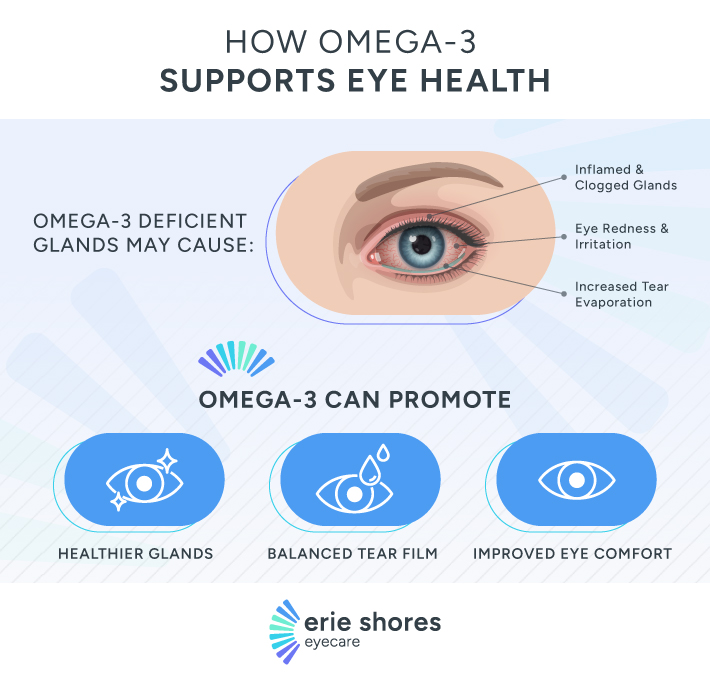
Where Can I Find Omega-3?
Omega-3 can be found naturally in:
- Flaxseed
- Chia seeds
- Walnuts
- Soybeans
- Fish
The types of omega-3 found in fish, called DHA and EPA, play particularly essential roles in the human body. Their anti-inflammatory properties help treat and prevent dry eye disease and can even reduce the risk of chronic diseases like heart disease.
Fish Oil Supplements
Although fish are great sources of DHA and EPA, they also naturally contain mercury. To make fish oils safer, manufacturers often add alcohol to remove these toxins. This process turns the natural fats in fish oil into a different form that our bodies find hard to absorb because they don’t occur naturally.
Omega-3 PRN offers EPA and DHA in re-esterified triglyceride form to help make them easier for our bodies to absorb. Re-esterification is a method that removes the added alcohol from ethyl ester fish oil to create a more natural form of omega-3.
These supplements offer a safe and effective way to consume EPA and DHA, promoting a healthy tear film and overall eye comfort.
Other Ways to Combat Dry Eyes
In-office treatments and at-home care can help alleviate persistent dry eye symptoms. Since everyone’s situation may be different, it’s important to consult with your eye doctor to receive a proper diagnosis and determine a treatment plan.
Omega-3 can be particularly helpful for evaporative dry eye caused by MGD. Additionally, to help unclog your meibomian glands and improve gland function, your eye doctor can recommend in-office treatments like:
- Intense pulsed light (IPL) therapy
- Radiofrequency (RF)
- LipiFlow
For at-home treatments, your eye doctor may recommend using:
- Artificial tears to provide temporary relief for mild symptoms, especially when dry or windy environments cause the dry eye
- Medicated drops to help hydrate and protect the eyes, alleviating severe dry eye symptoms
- Warm compresses to help unclog the meibomian glands, stimulate oil production, and improve gland function
- Eyelid cleansers to maintain proper eyelid hygiene and promote quality tear production
If you’re experiencing dry eye due to your environment, your eye doctor may also suggest making certain lifestyle changes, like avoiding smoke, harsh wind, and air conditioning. You may use a humidifier to introduce moisture to dry air. Limiting screen time can help give your eyes a break, reducing eye strain and dry eye symptoms.
Find Relief from Dry Eye
Omega-3 fatty acids can help support overall eye health. When combined with personalized treatment, they can help reduce inflammation and increase tear quality.If your dry eye symptoms are persistent and uncomfortable, contact our team at Erie Shores Eyecare. We can help tailor a treatment plan to help you find relief!





